When transformation needs traction
OKRs help you move from PowerPoint strategy to real-world execution with visibility, alignment, and measurable momentum.
When delivery lags behind ambition
Transformation leaders often inherit big ambitions but translating them into action across legacy systems, siloed teams, and change fatigue is no easy task. OKRs create a shared language of focus, making strategy real for teams and measurable for leadership. Without them, progress is hard to scale and harder to prove.
- You’re juggling disconnected initiatives without a unifying focus
- Communication isn’t landing teams don’t see where they fit in
- You need a clear mechanism to align effort to strategy
- Senior leaders want faster progress and more tangible results
How we help Transformation Leads drive alignment that sticks
You’re tasked with turning strategy into tangible change. Our OKR Focus Flow helps Transformation Leads embed OKRs as a practical, unifying framework creating the alignment, accountability, and cadence needed to deliver real progress across teams.
It’s not just about adopting OKRs it’s about embedding a rhythm that helps transformation land, scale, and last.
- Diagnose: Identify where strategic intent is lost in execution and where teams need focus
- Design: Shape OKRs that align across portfolios, programmes, and BAU delivery
- Deploy: Roll out OKRs with sponsorship, training, and change support across business units
- Drive: Embed rituals that help teams reflect, adapt, and stay aligned during change
- Deepen: Build internal capability so OKRs evolve with the organisation not around it
Make change measurable, not just theoretical
Use OKRs to tie transformation initiatives to real outcomes and progress not just activity logs or slide decks.
Unite change, strategy, and delivery
OKRs create a common thread across functions, work-streams, and delivery models helping teams prioritise what matters.
Build the muscle, not just the method
With OKR training and coaching, you develop internal capability to sustain transformation well beyond the launch.
Create rhythm, not overload
OKRs give teams a cadence to stay aligned and focused — without adding layers of bureaucracy.
Want to see how OKRs could work for you?
Download our free OKR Launch Guide for Enterprise Leaders a practical workbook with tips, examples, and pitfalls to avoid when introducing OKRs in a Corporate environment.
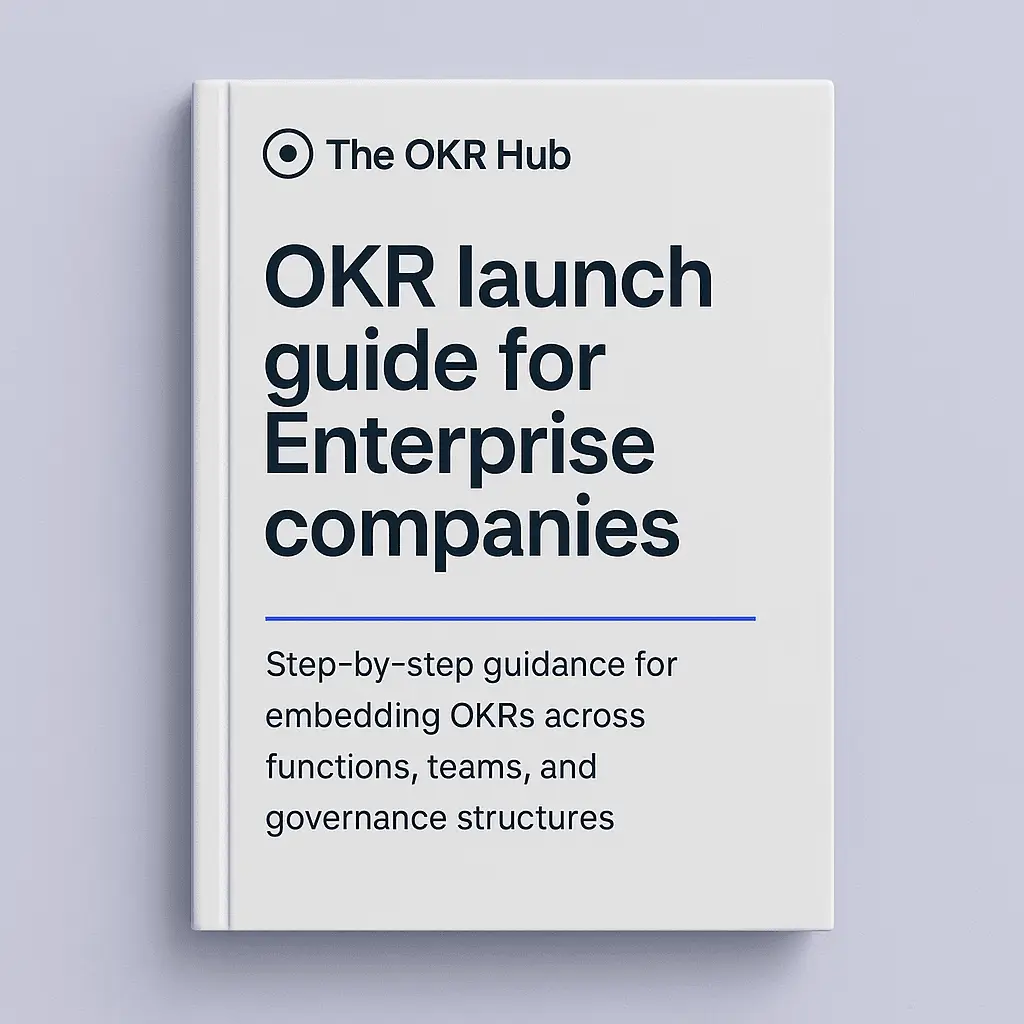
Most OKRs fail, not because of the framework, but because they’re not done well.
OKRs promise clarity, alignment, and focus, but too often, they become empty rituals. Without the right setup, support, and internal capability, teams struggle to gain traction. That’s why more than half of all OKR rollouts fail.
Explore our expert resources to avoid the pitfalls and unlock OKRs that actually deliver.
OKR Failure Rates
More than 60% of organisations struggle with setting effective OKRs, leading to failure in adoption.
(OKR Benchmark Report 2023)

DIY OKRs fall short
Only 1 in 5 organisations succeed with OKRs without external support, training, or coaching.
(WorkBoard)
Expert Guidance
Enterprises that invest in professional OKR training see a 25% improvement in alignment and goal tracking.
(Gartner)

How We Deliver High-Impact OKR Training
Our training isn’t about lectures and slides it’s about real learning that sticks.
Using the 4C’s model (Connection, Concept, Concrete Practice, Conclusion), we create high-energy, hands-on sessions where participants learn by doing, sharing, and applying.
Experiential Training, Not Just Theory
We create interactive learning environments where people connect with the material and each other. From day one, participants are engaged in group activities, OKR writing, and scenario-based practice that’s directly relevant to their work.

Connection
We start by linking OKRs to each participant’s role and reality building immediate relevance and shared understanding.
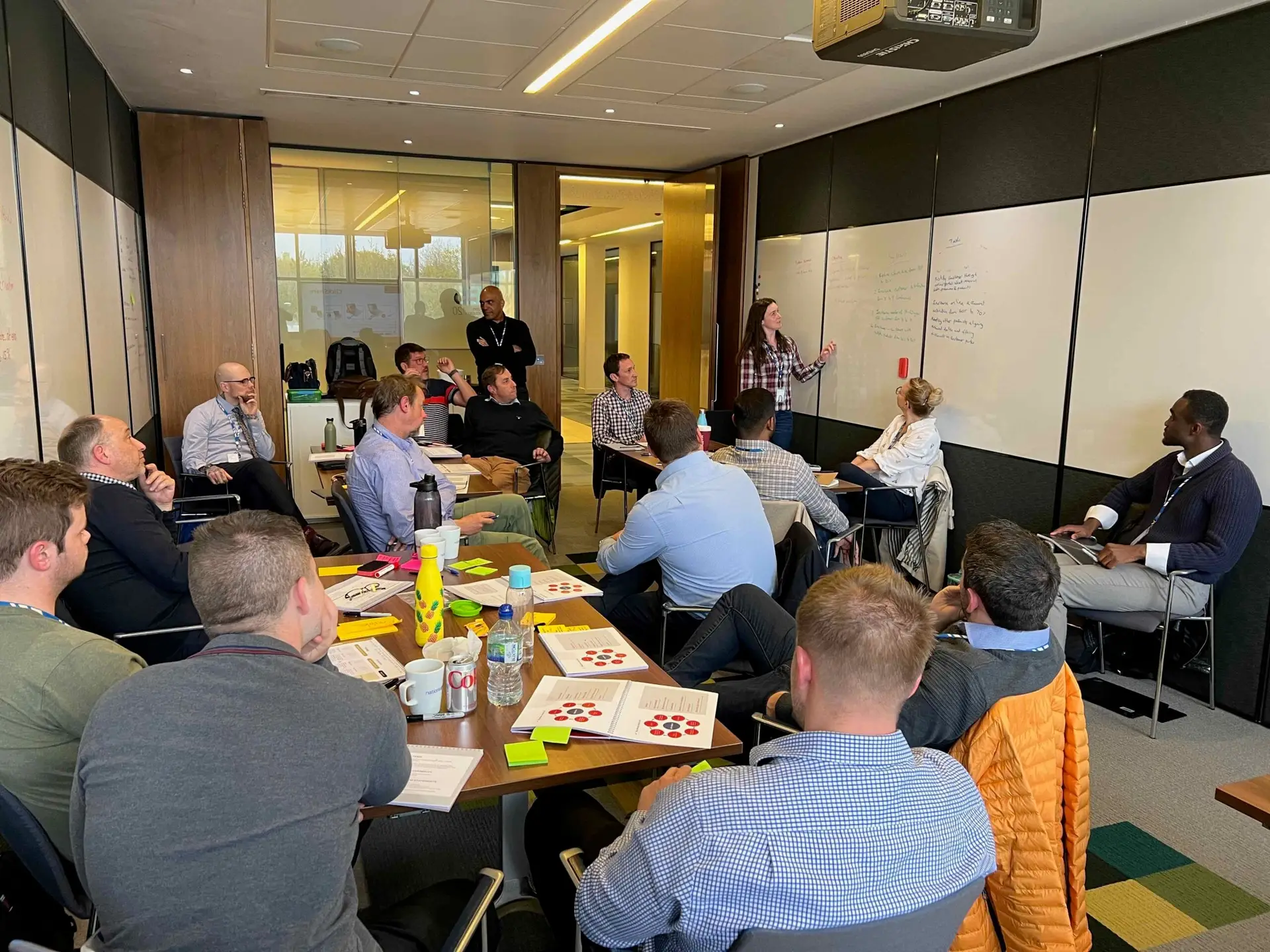
Concept
Next, we introduce the core OKR principles through simple models, memorable metaphors, and real-world examples.
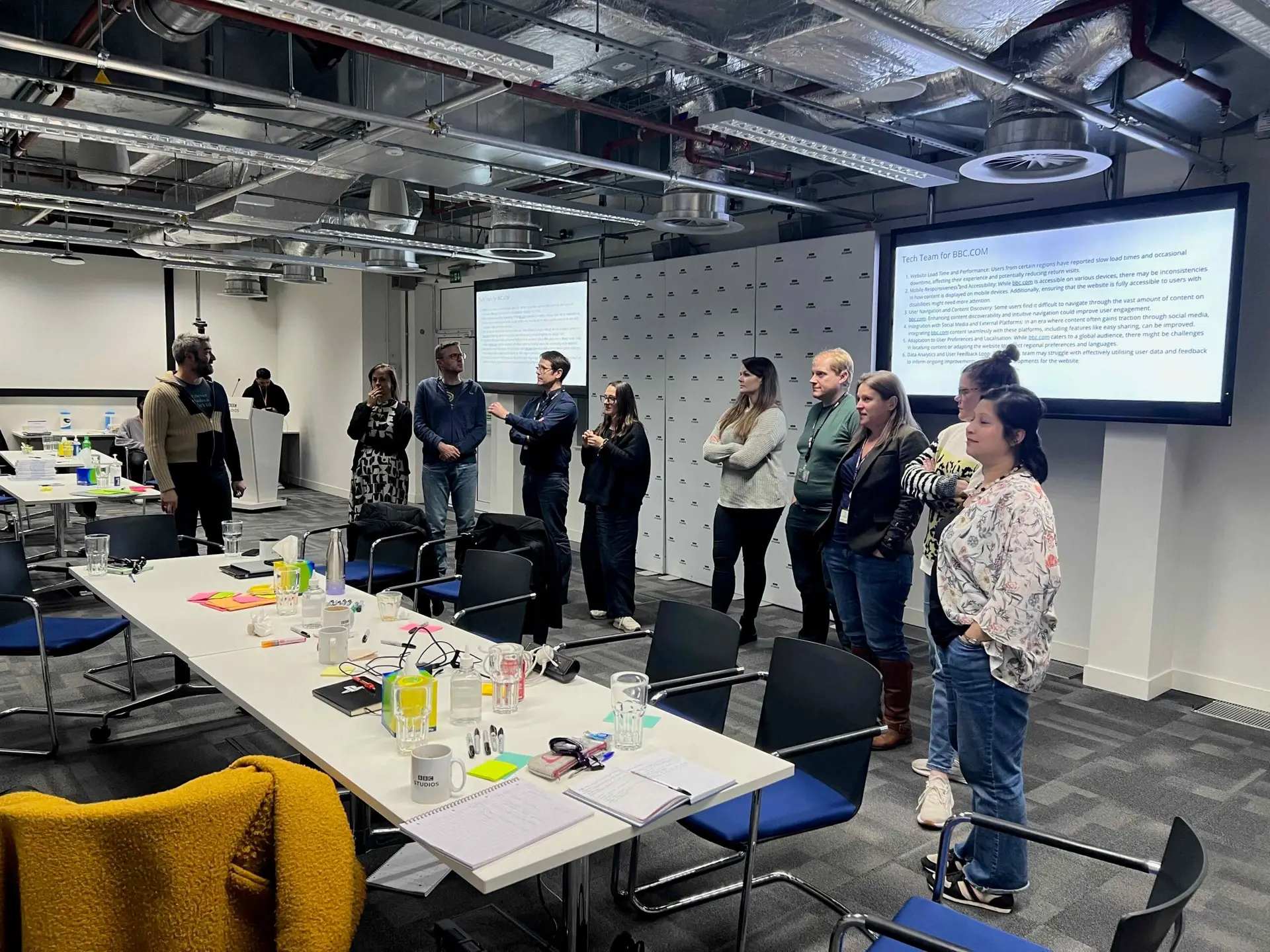
Concrete Practice
Participants immediately put their learning into action by writing, reviewing, and improving OKRs in small groups.
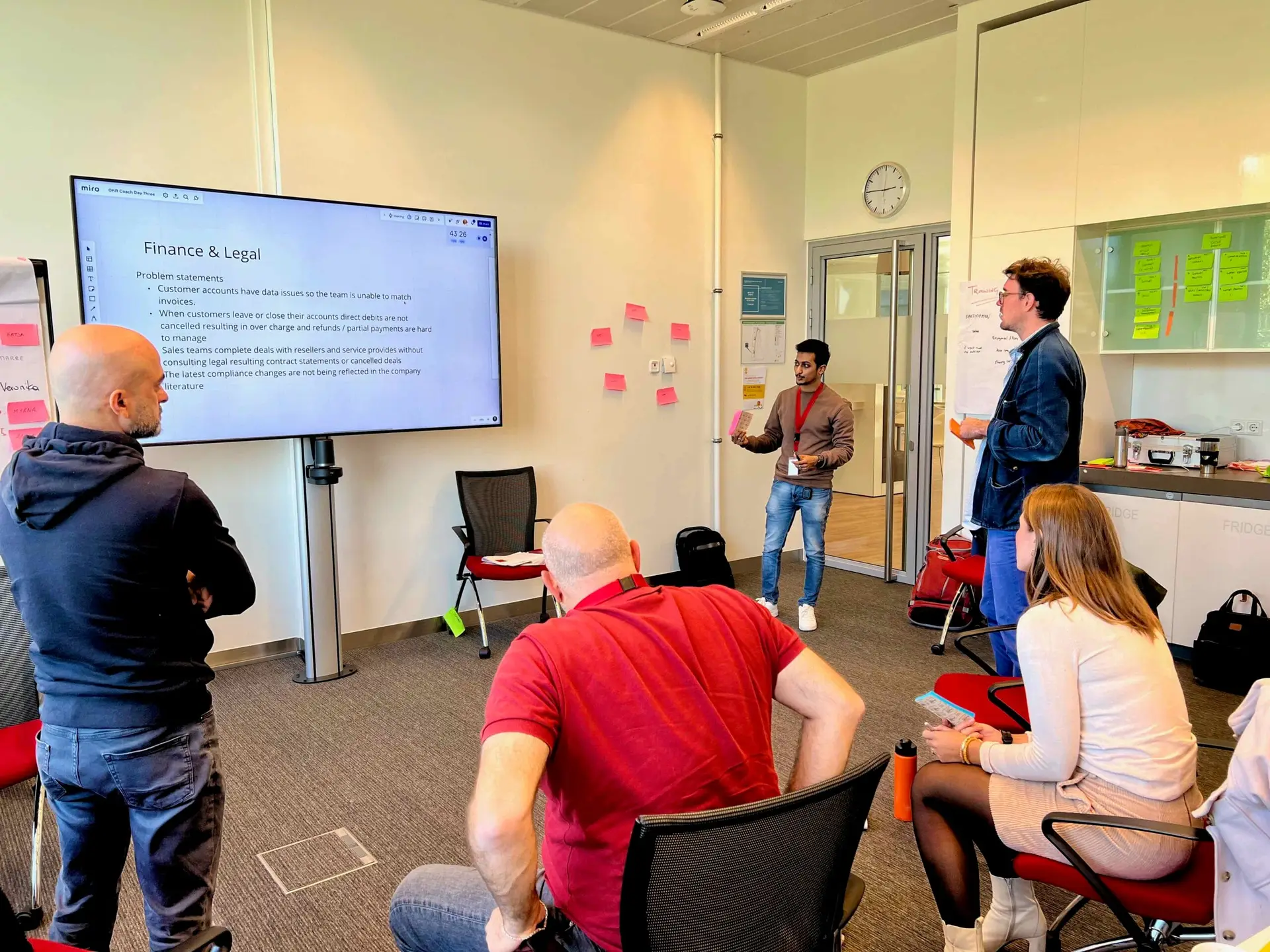
Conclusion
Each session ends with reflection, practical takeaways, and clear next steps in preparation for real-world application.
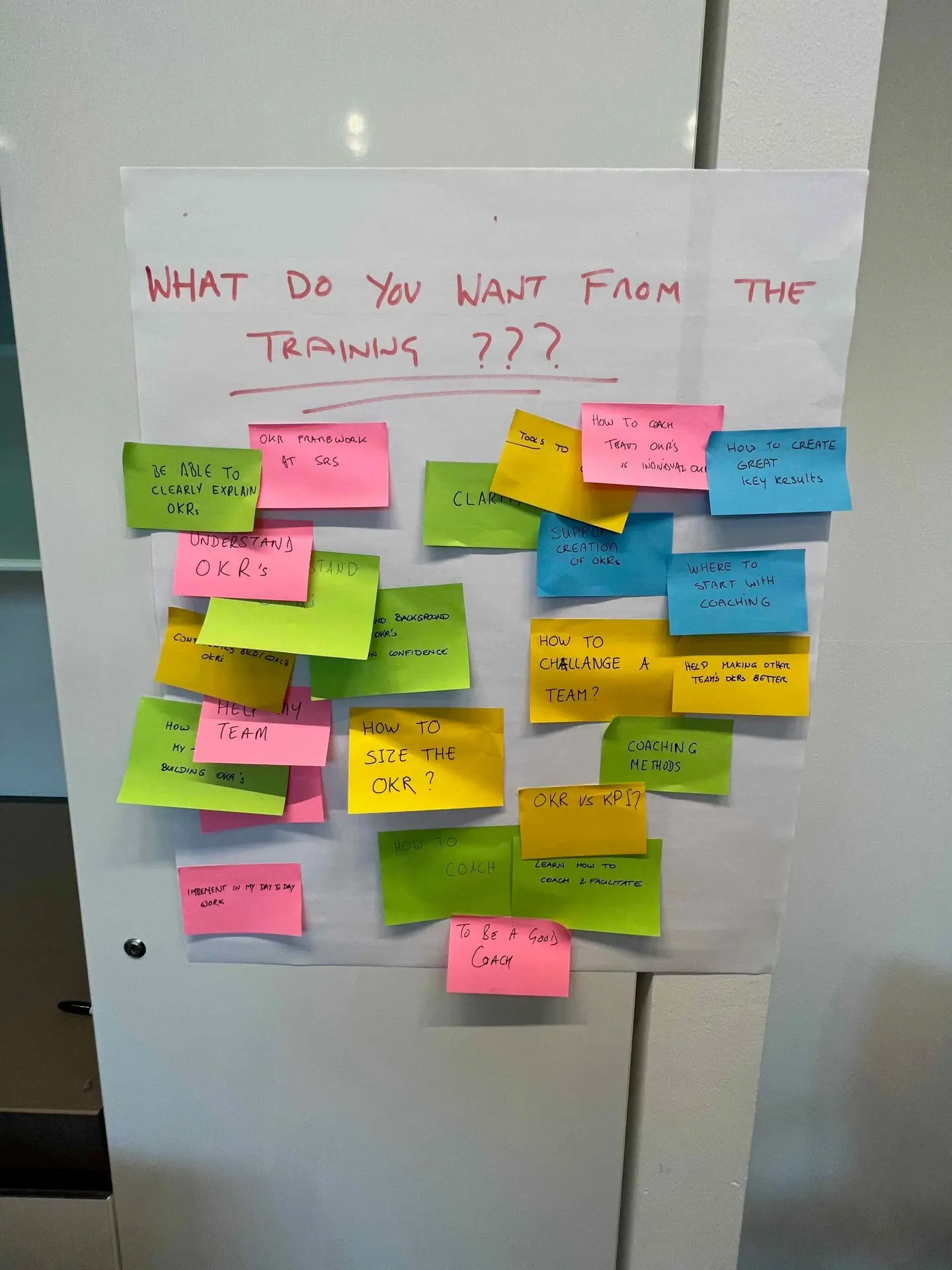
Common OKR challenges we can address
Navigating OKR implementation can be complex.
Here are the common challenges we work with our clients to solve.
Vague or Task-Based OKRs
Problem: Teams often create OKRs that resemble task lists rather than focusing on impactful outcomes.
Solution: We teach patterns and techniques to help teams consistently craft outcome-oriented OKRs.
Unclear Ownership and Accountability
Problem: Ambiguity in OKR ownership can result in lack of accountability and follow-through.
Solution: We teach Teams how to create and define clear ownership structures, ensuring each OKR has an accountable individual or teams.
Inconsistent Quality Across Teams
Problem: Variability in OKR quality between teams can hinder organisational cohesion and performance.
Solution: Training everyone to a standard approach ensures consistency and shared understanding.
Setting and Forgetting OKRs
Problem: Establishing OKRs without regular review can lead to stagnation and missed opportunities for adjustment.
Solution: We’ll share an OKR execution process, including events and agendas that enables teams to undertake regular check-ins and reviews to keep OKRs dynamic and responsive to change.
Confusion Between OKRs and KPIs
Problem: Misunderstanding the distinction between OKRs and KPIs can blur performance tracking and goal setting.
Solution: We clarify the roles of OKRs and KPIs, ensuring each is used appropriately to measure success.
Absence of Regular OKR Cadence
Problem: Without a structured cadence, OKR processes can become disjointed and ineffective.
Solution: We help teams to understand what a consistent OKR cycle is, including planning, review, and retrospective phases.
Dependence on External Facilitation
Problem: Relying solely on external consultants for OKR processes can be unsustainable.
Solution: We empower your internal teams with the knowledge and tools to manage OKRs independently.
Lack of Confidence in OKR Creation
Problem: Teams may feel uncertain about formulating effective OKRs due to lack of experience or knowledge.
Solution: We use the 4C’s approach to improve learning and provide scenario based learning opportunities.
Confusion Around OKR Tools & Systems
Problem: Teams invest in OKR platforms without the knowledge to use them effectively leading to underuse, frustration, or misalignment between the tool and how teams actually work.
Solution: We provide tool-agnostic guidance and training on popular OKR systems helping you choose the right platform, set it up correctly, and train your teams to get real value from it.
Lack of Post-Training Support
Problem: Many organisations complete OKR training but struggle to embed the practice without continued guidance. Teams are left asking, “What now?”
Solution: We provide hands-on post-training support, including OKR coaching, feedback sessions, and rollout planning.
Still have questions?
Still unsure about the right OKR training for you? Get in touch, and we’ll guide you in the right direction.
Latest Insights & Articles
Fresh Thinking to Elevate Your OKR Game
Let's have a chat
What to speak with an OKR Hub expert?
Book a free consultation today.


